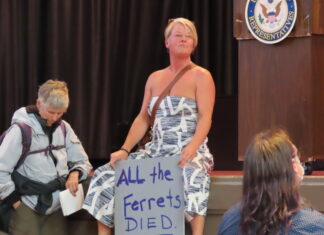FOLLOW US
News Column: An eye for an eye in Gaza? Bay Area youth and politicians...
On Saturday, in San Francisco, the morning was momentarily darkened by a “ring of fire” solar eclipse. After the sun re-emerged, thousands of grieving...
Ranches Poisoning Point Reyes National Seashore with Manure
January storms lashed a hilltop cattle feedlot at J Ranch in Point Reyes National Seashore. Tons of E. coli, ammonia, and nitrogen laden manure...
Point Reyes Fence Killer Confesses in Anonymous Letter
An anonymous vandal is drawing attention to the historic plight of hundreds of Tule elk trapped behind a wire and post fence at the...
The befouling of Point Reyes National Seashore
It’s an October morning at Point Reyes National Seashore and I’m scooting under barbed wire fences, wary of sliding into cow pies.
My guide on...
Paradise Cost: The Price of Supporting Private Ranching With a Sales Tax
Chief Marin, Leader, Rebel, and Legend by Betty Goerke traces how European settlers drove Indigenous peoples out of Marin County with guns, crosses and...
Richard C. Blum is Dead, but not (yet) Forgotten
Every day in the fog-caressed city of San Francisco, a half dozen souls are overwhelmed by the Big Sleep. But on Feb. 28, 2022...
Death by Design: How the National Park Service experiments on tule elk
Instagram users love the captive tule elk hoofing Tomales Point at the northern tip of Point Reyes National Seashore.
The sleek, befurred mammals seem to...
Breaking: Huffman Town Hall Disrupted by Angry Anti-Vaxxers
About 200 enraged, shouting anti-vaccination protestors stormed into the room minutes after Rep. Jared Huffman's town hall meeting commenced.











